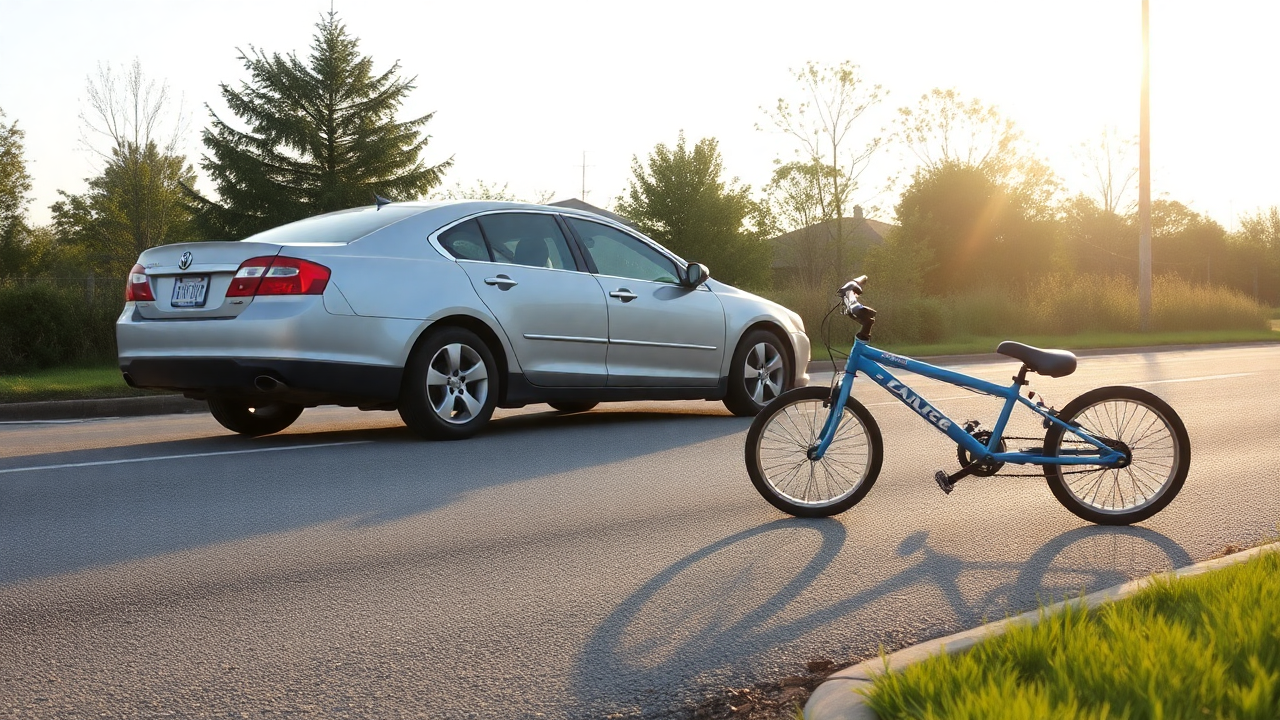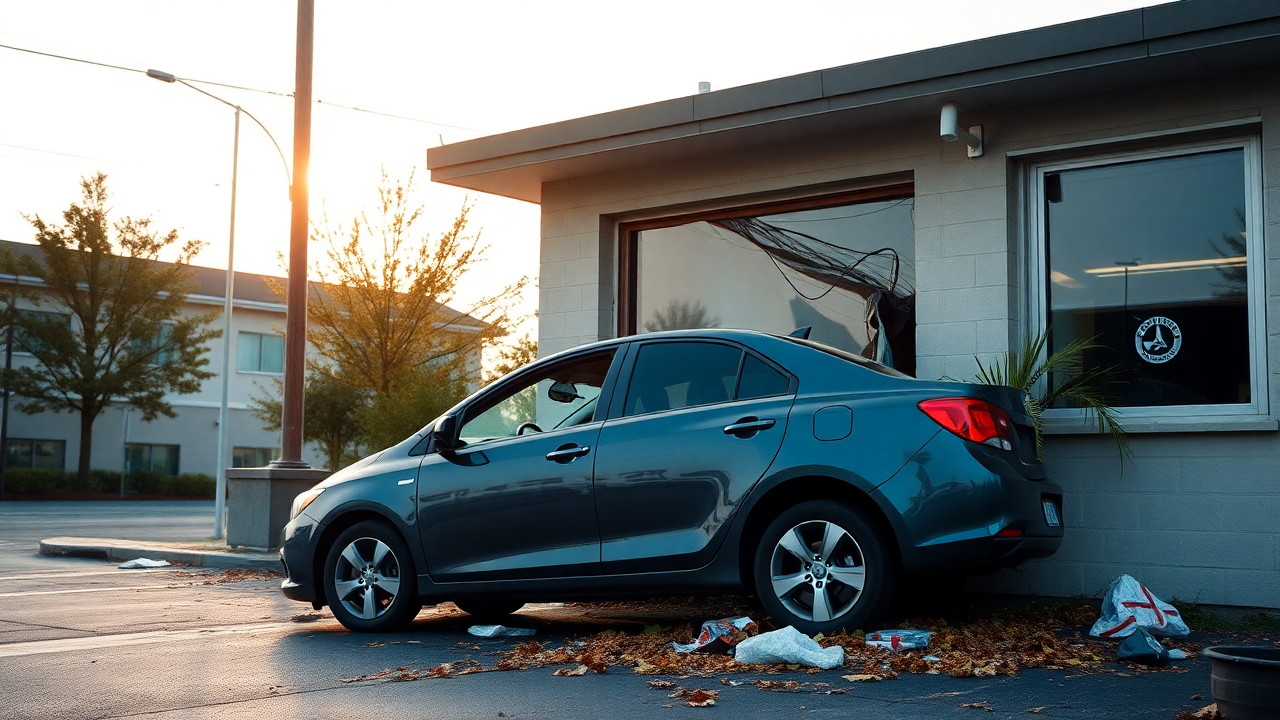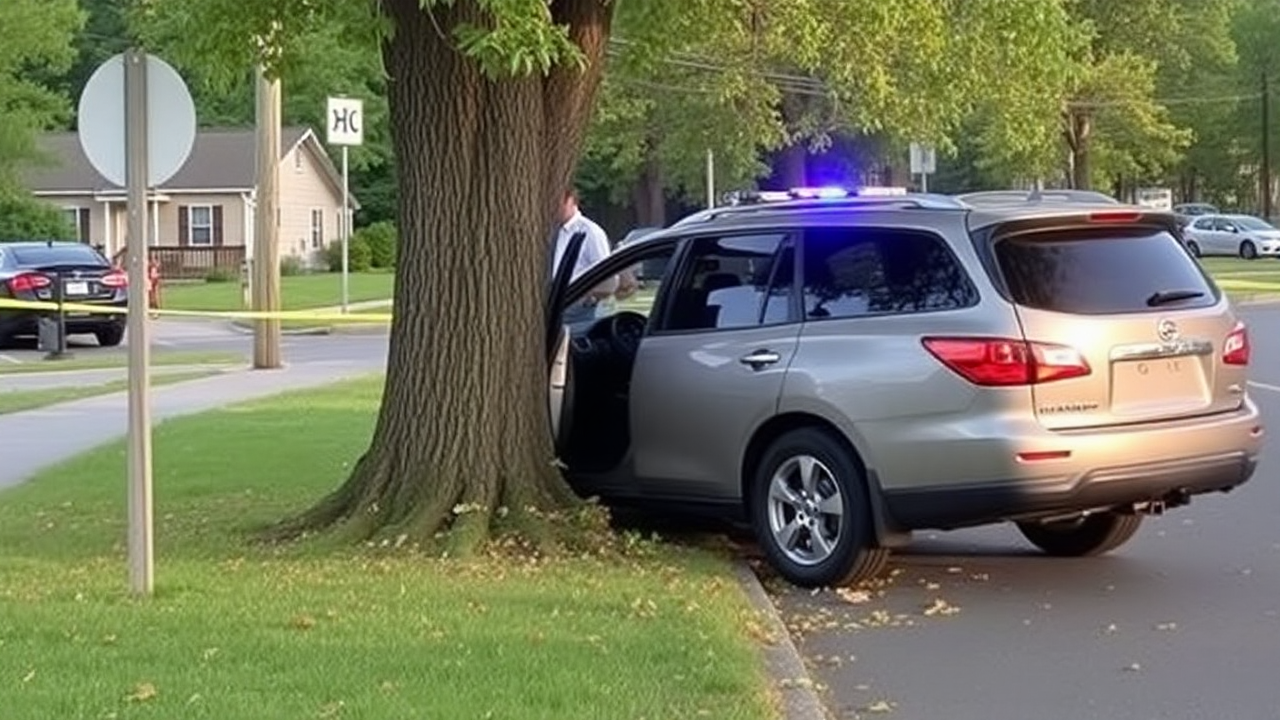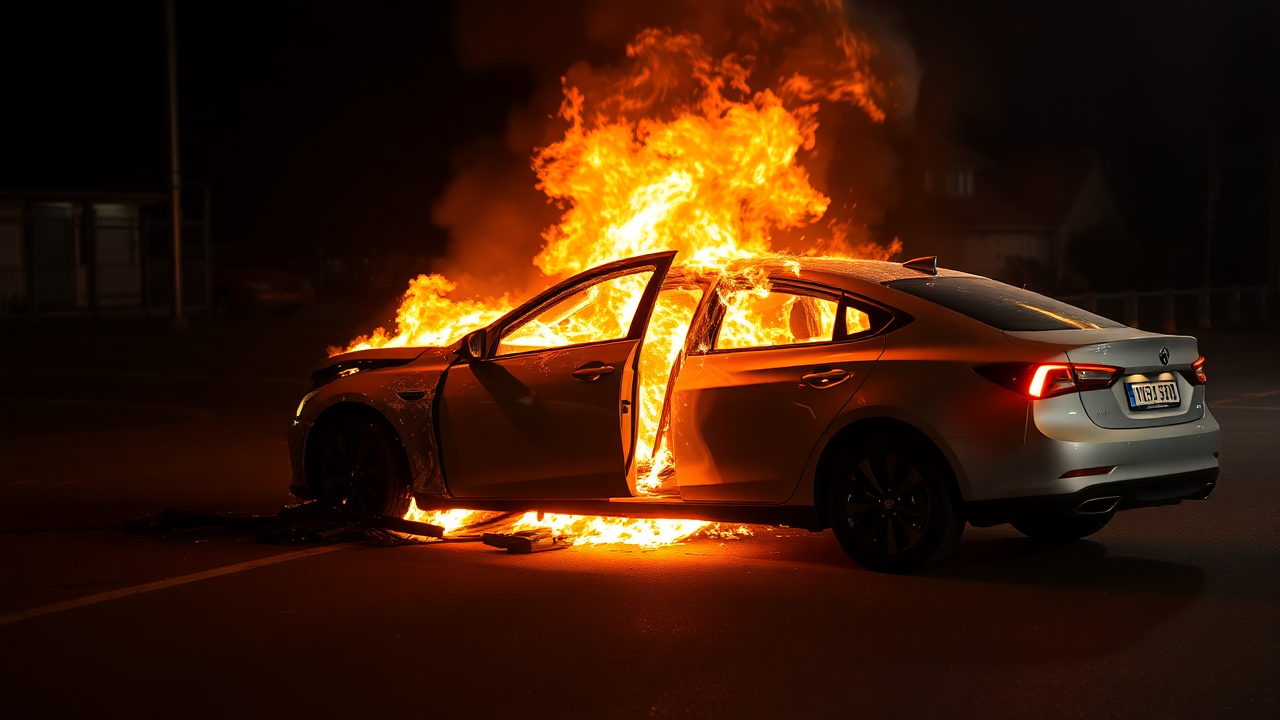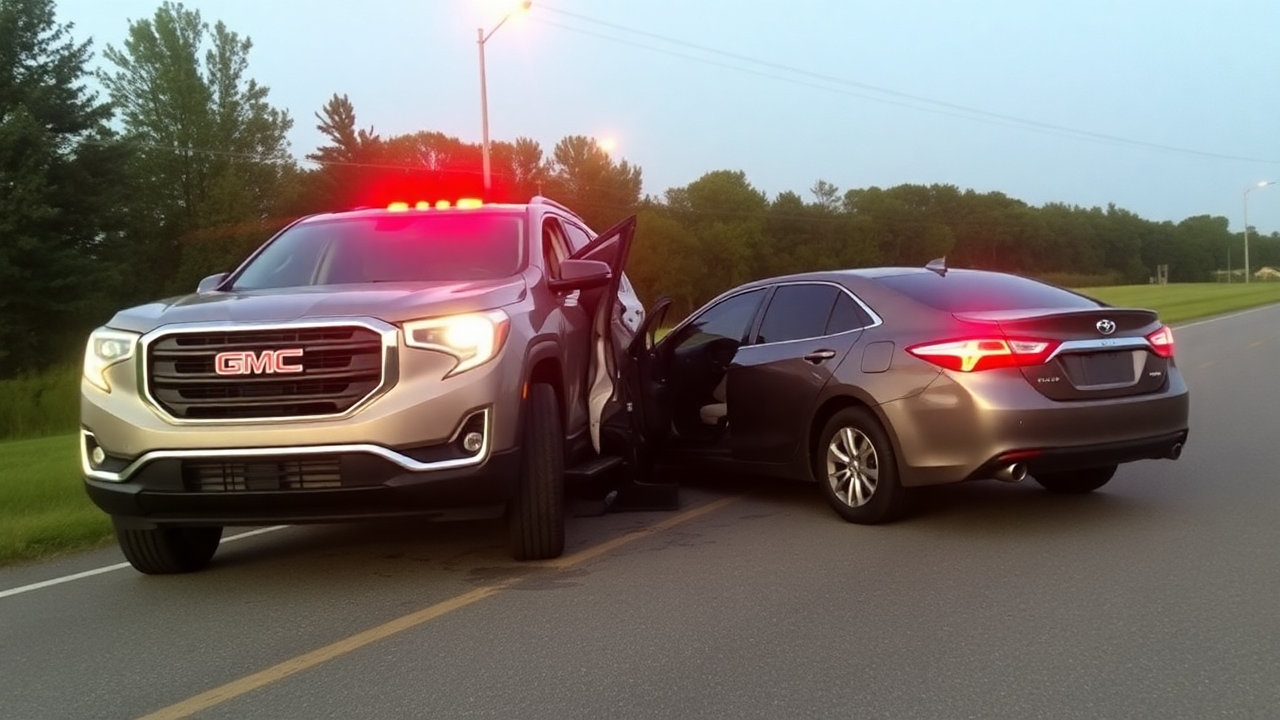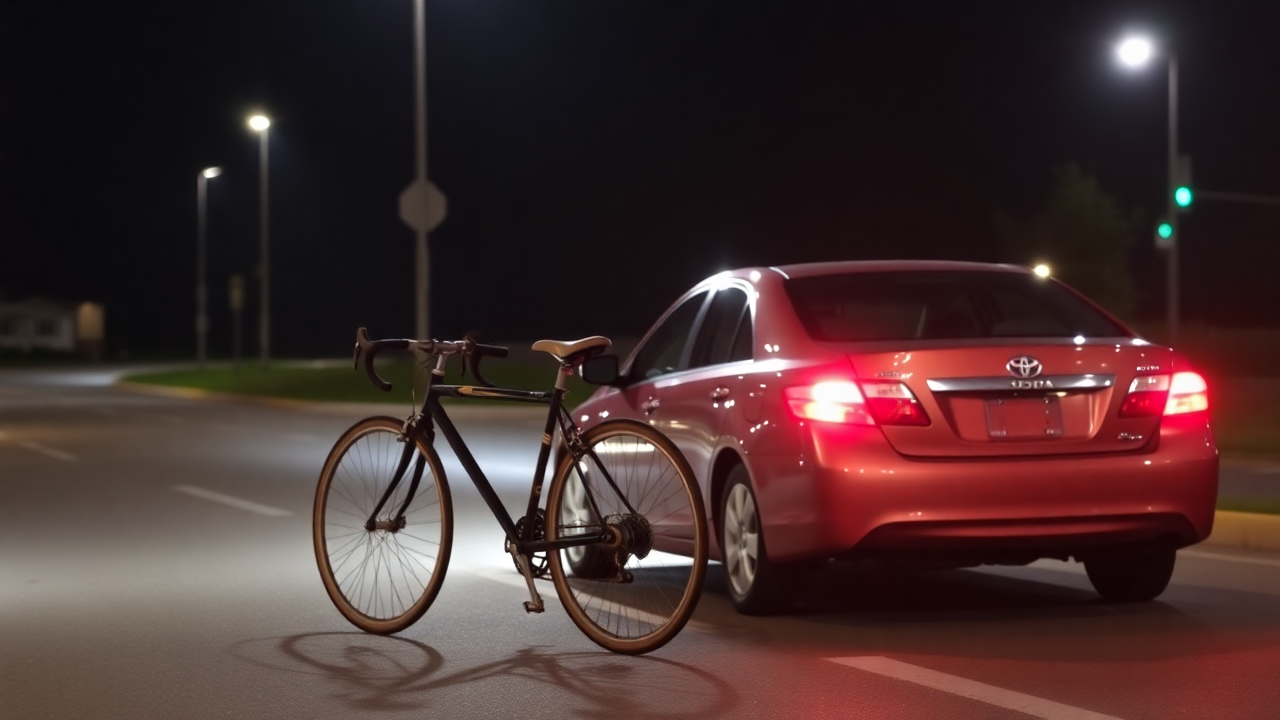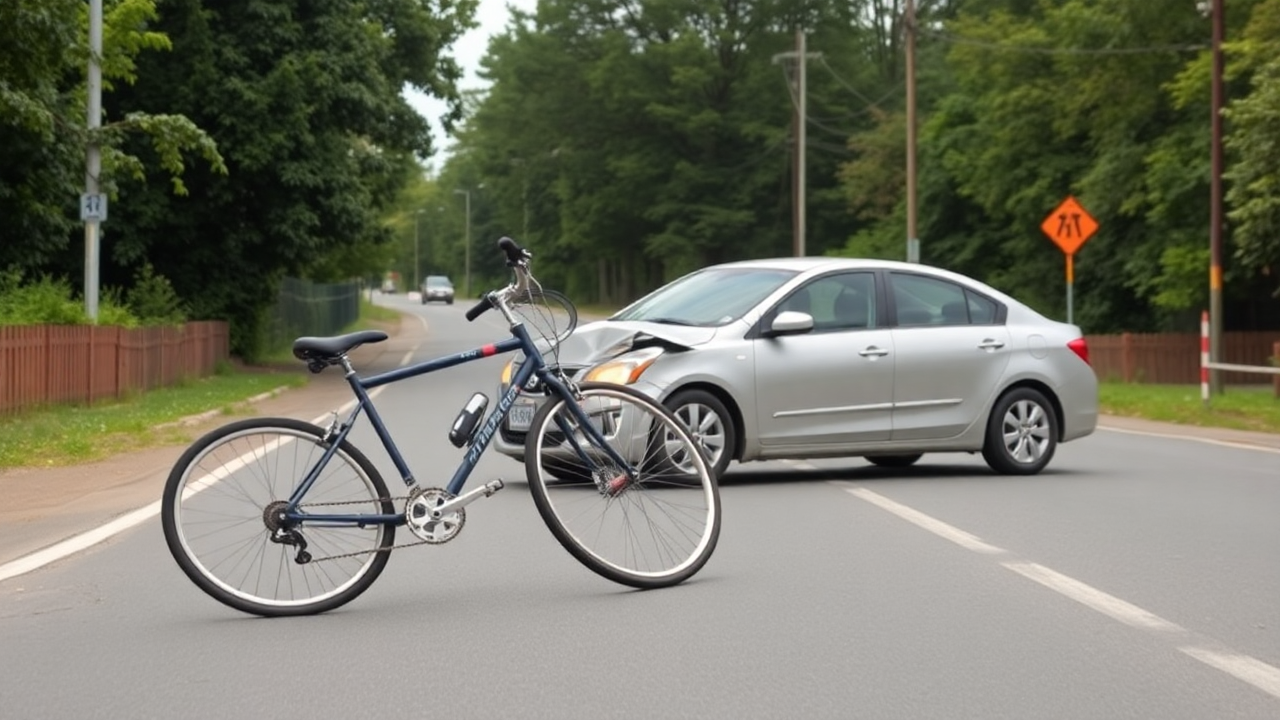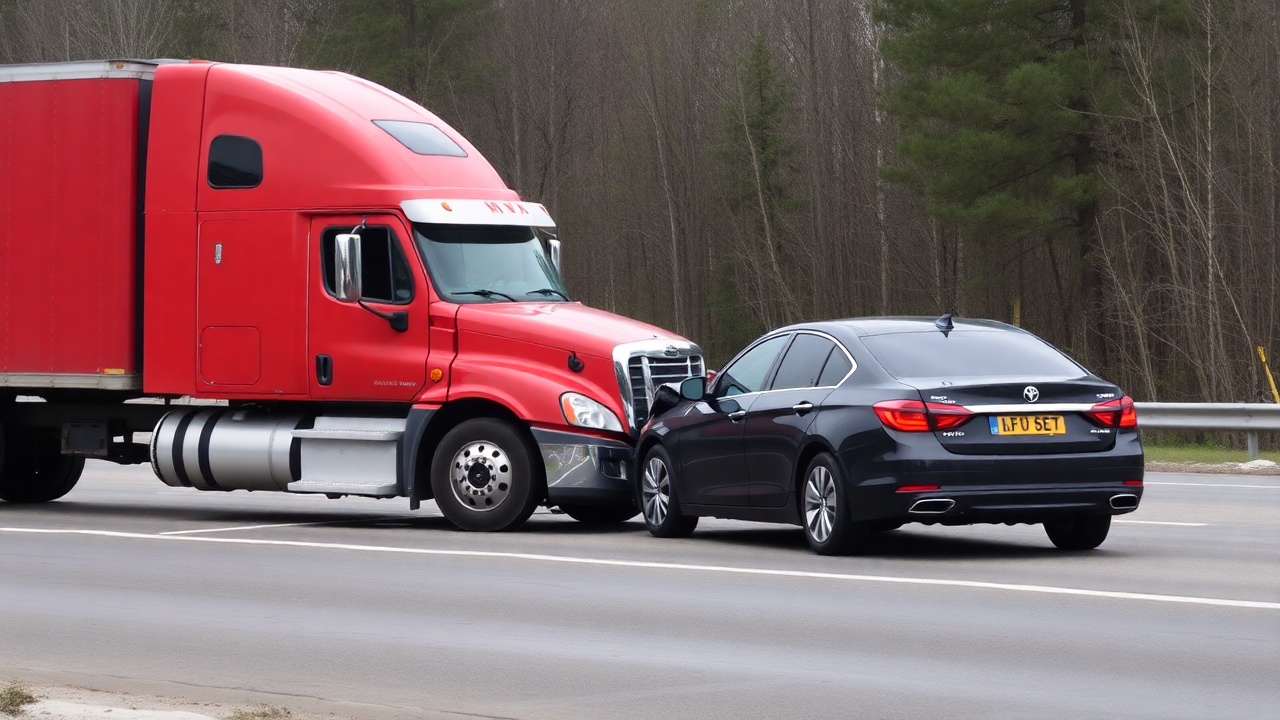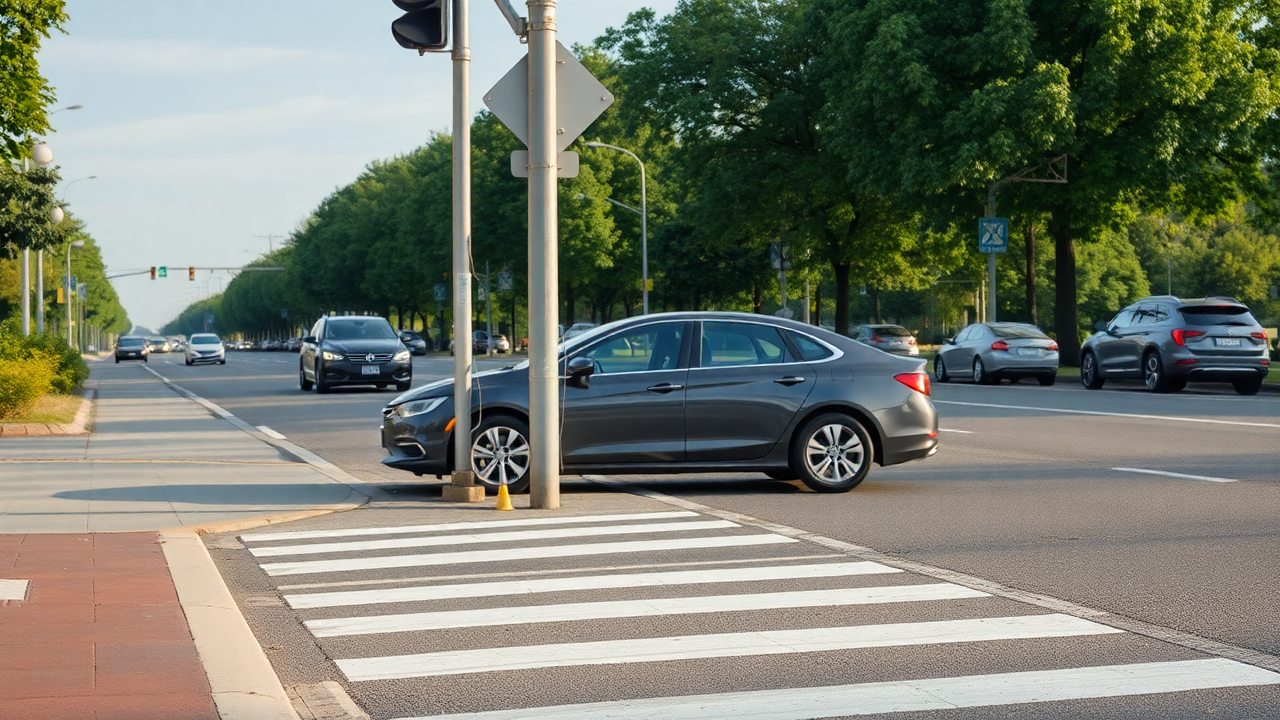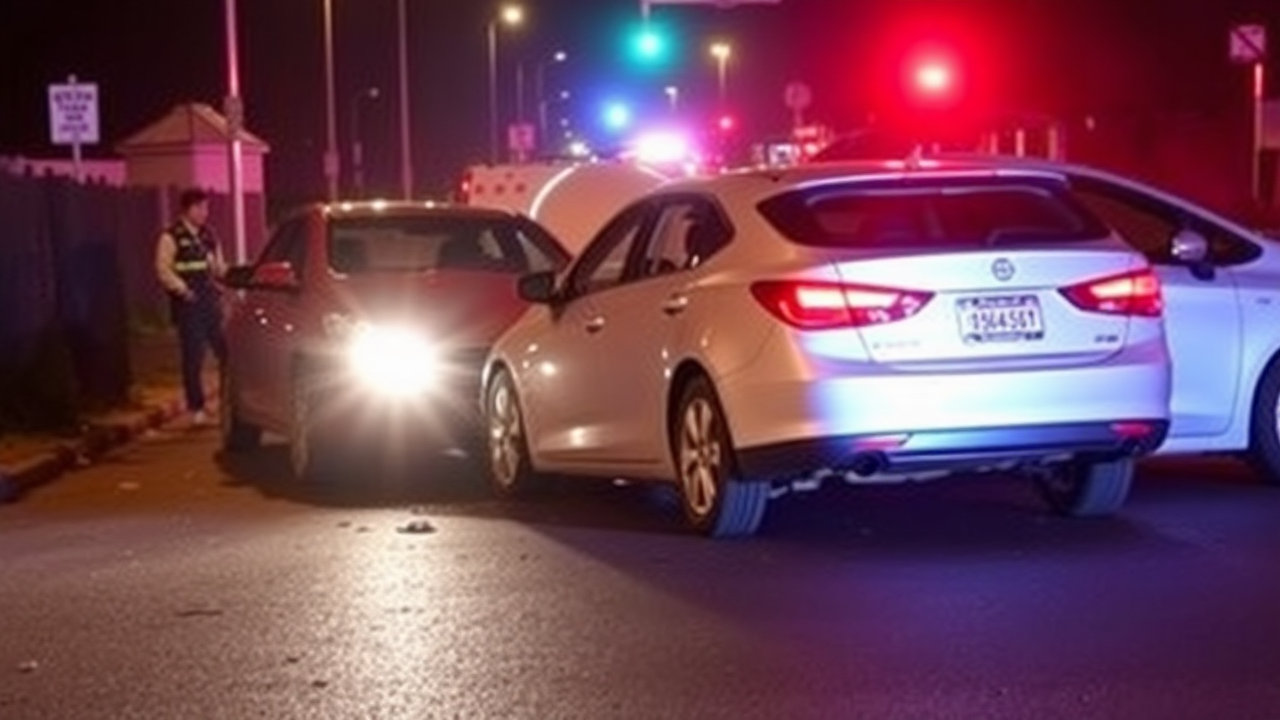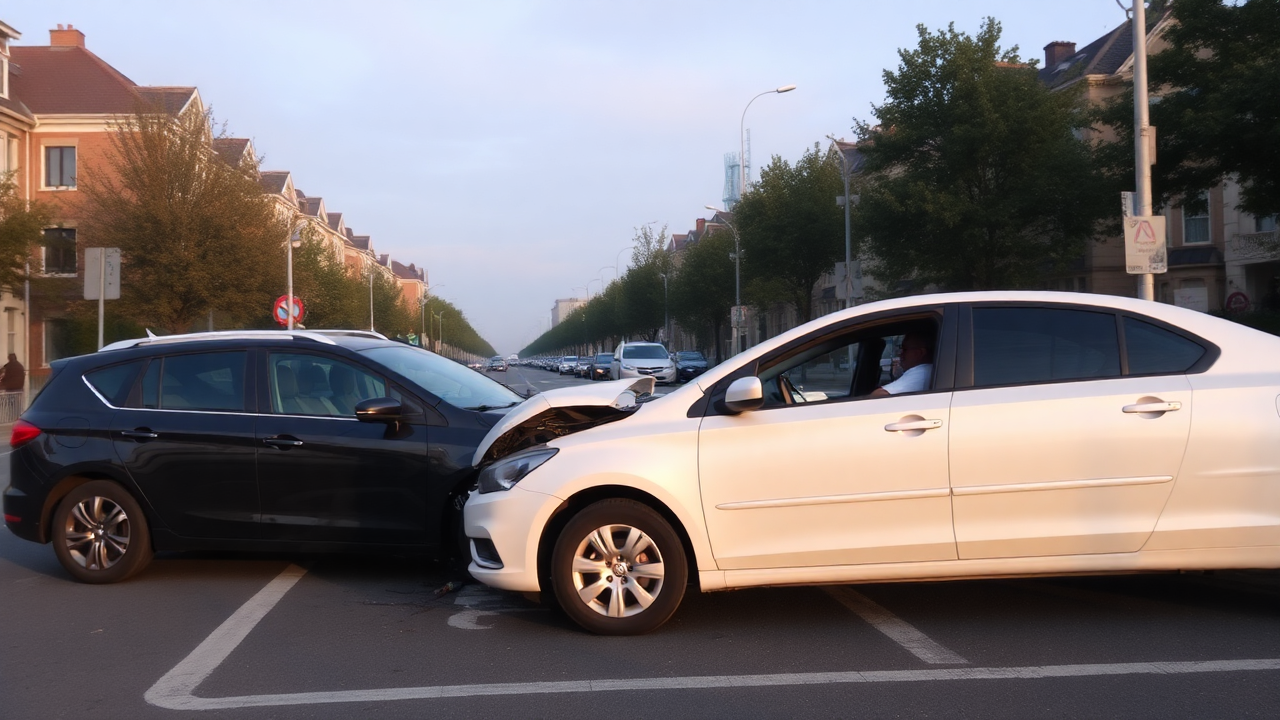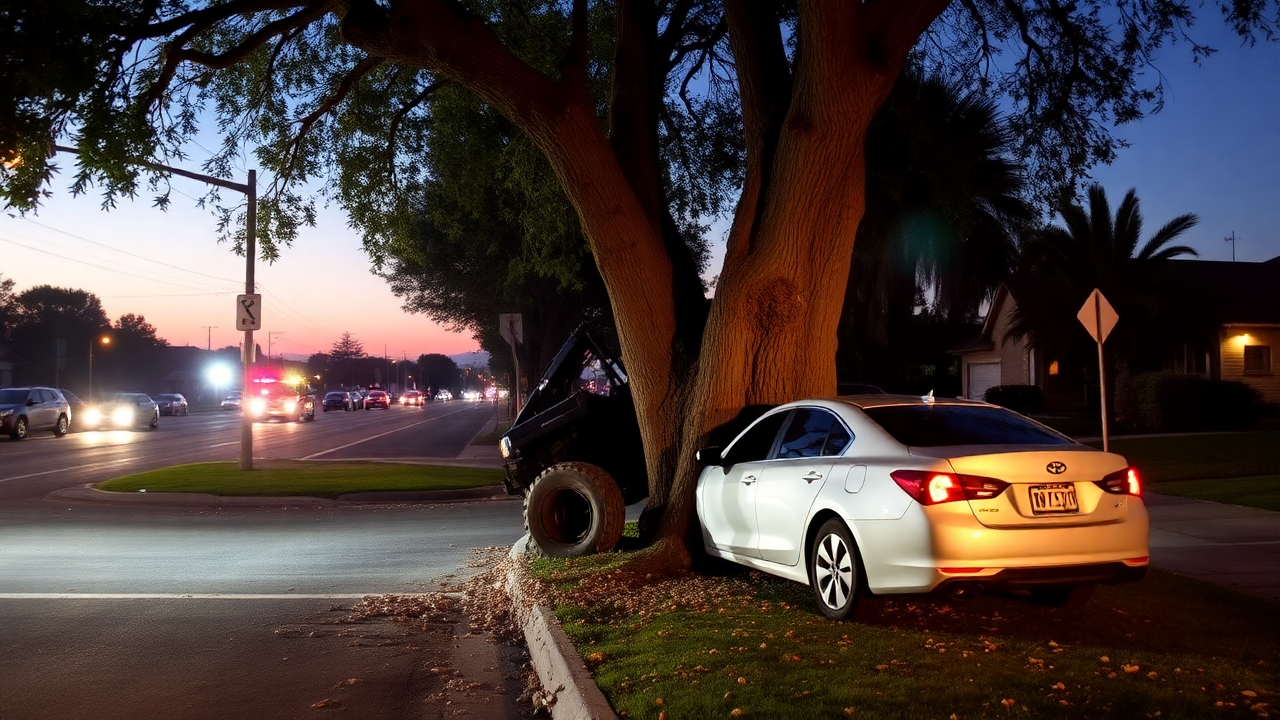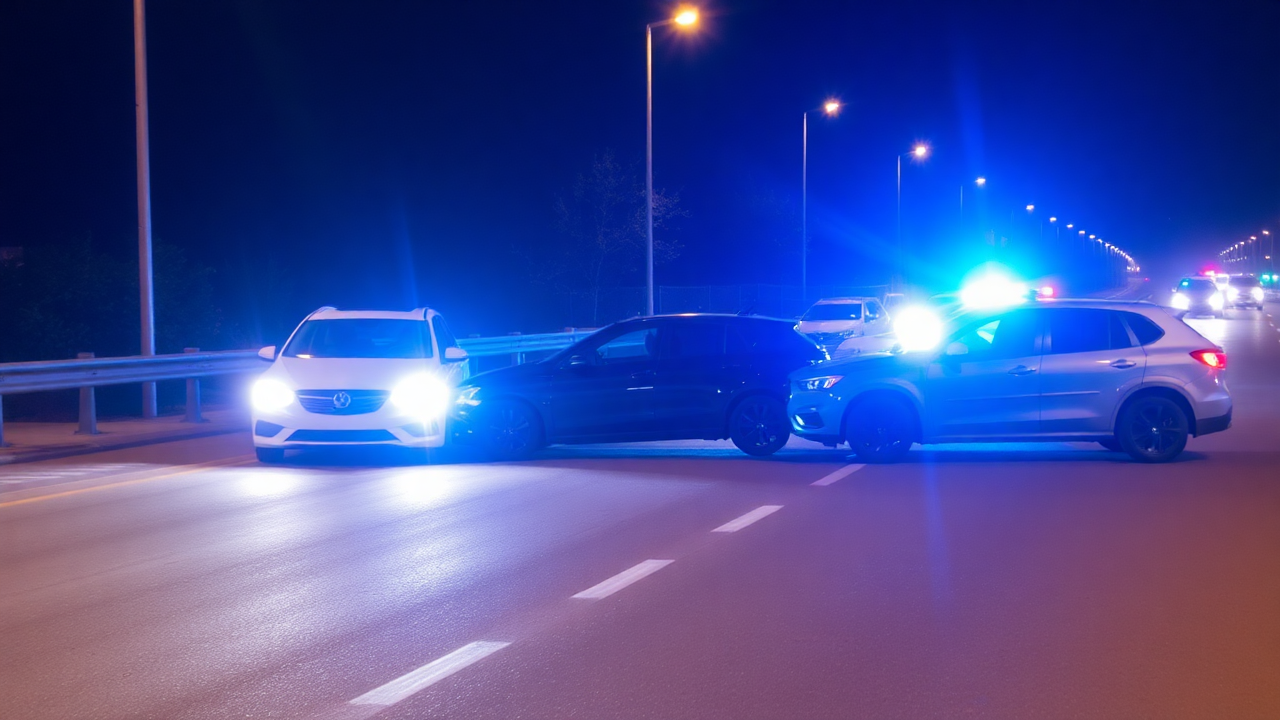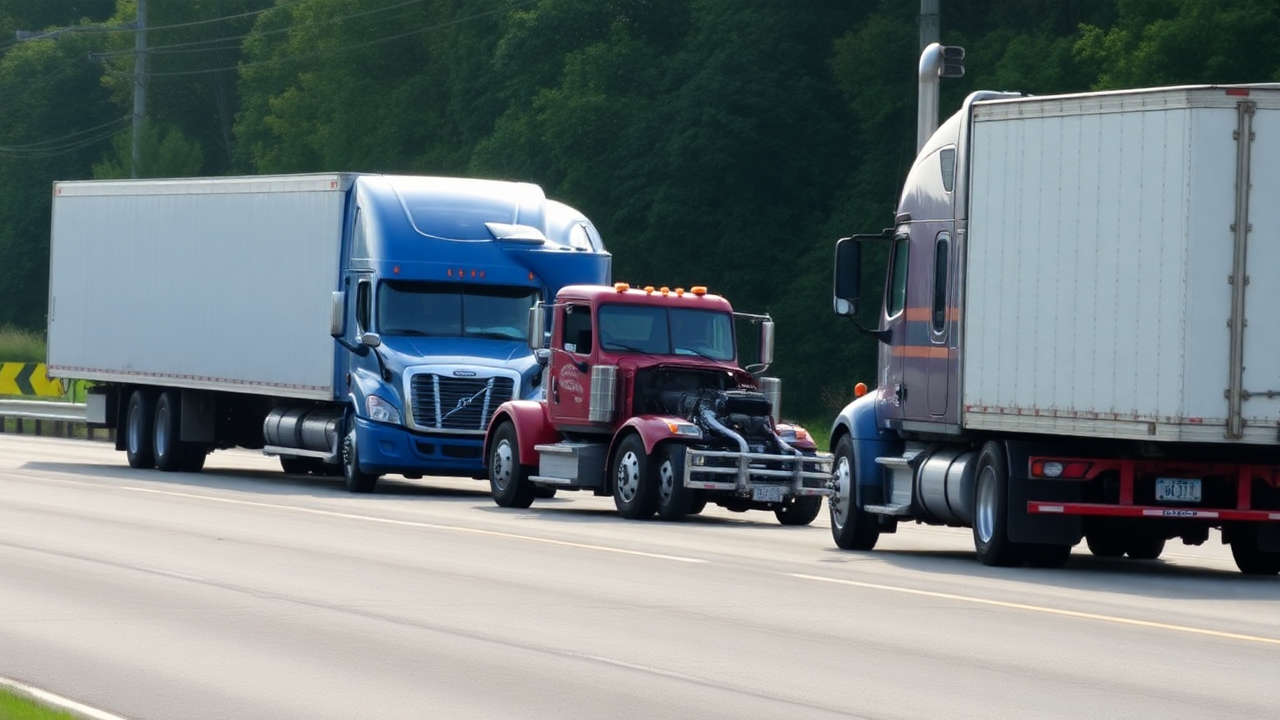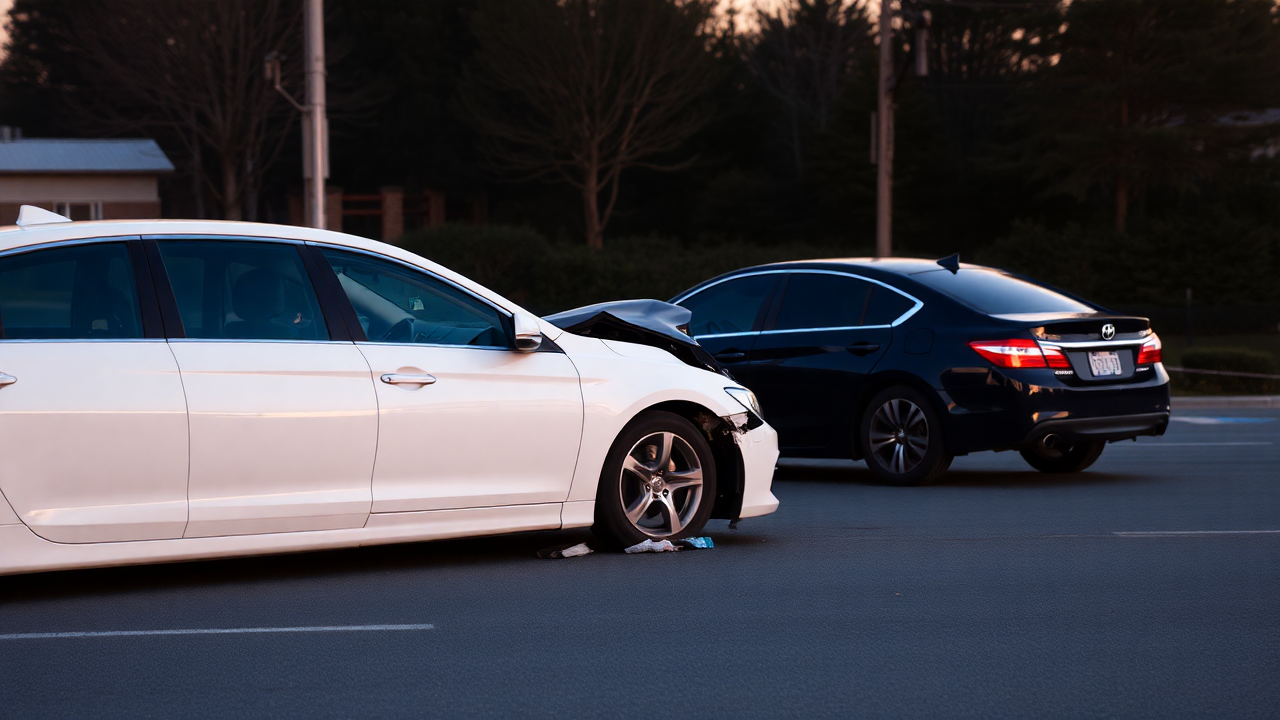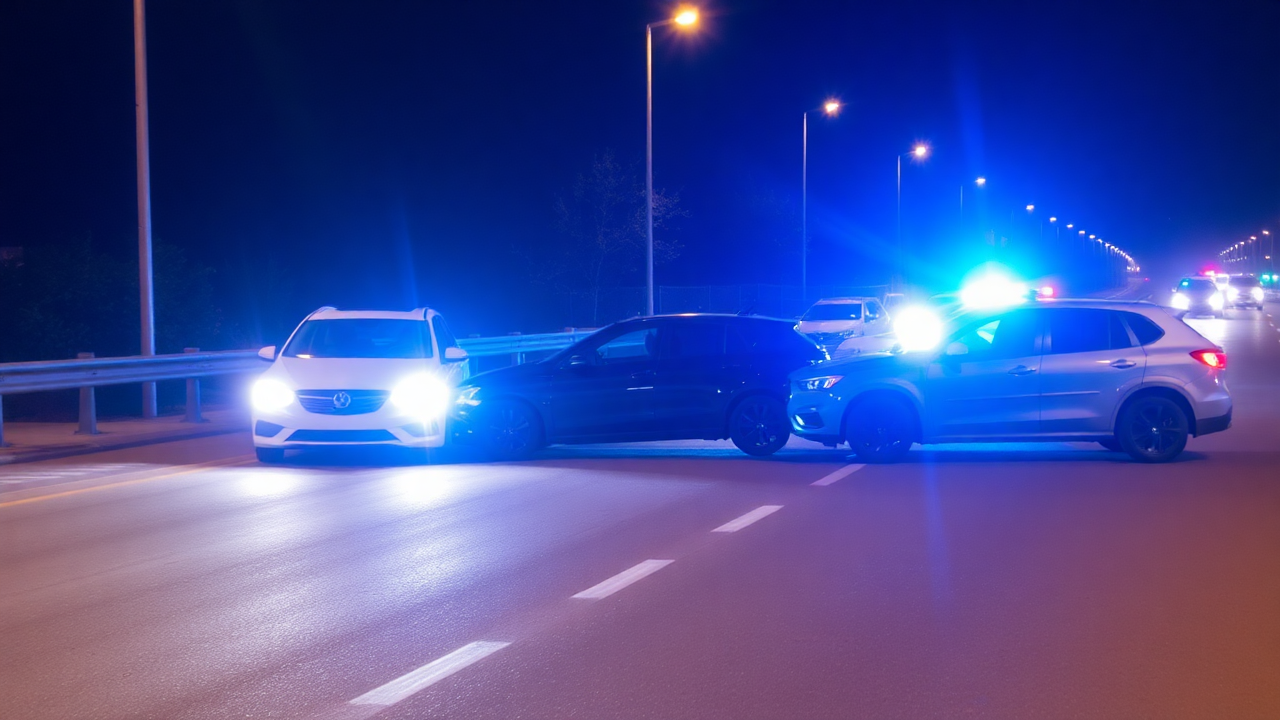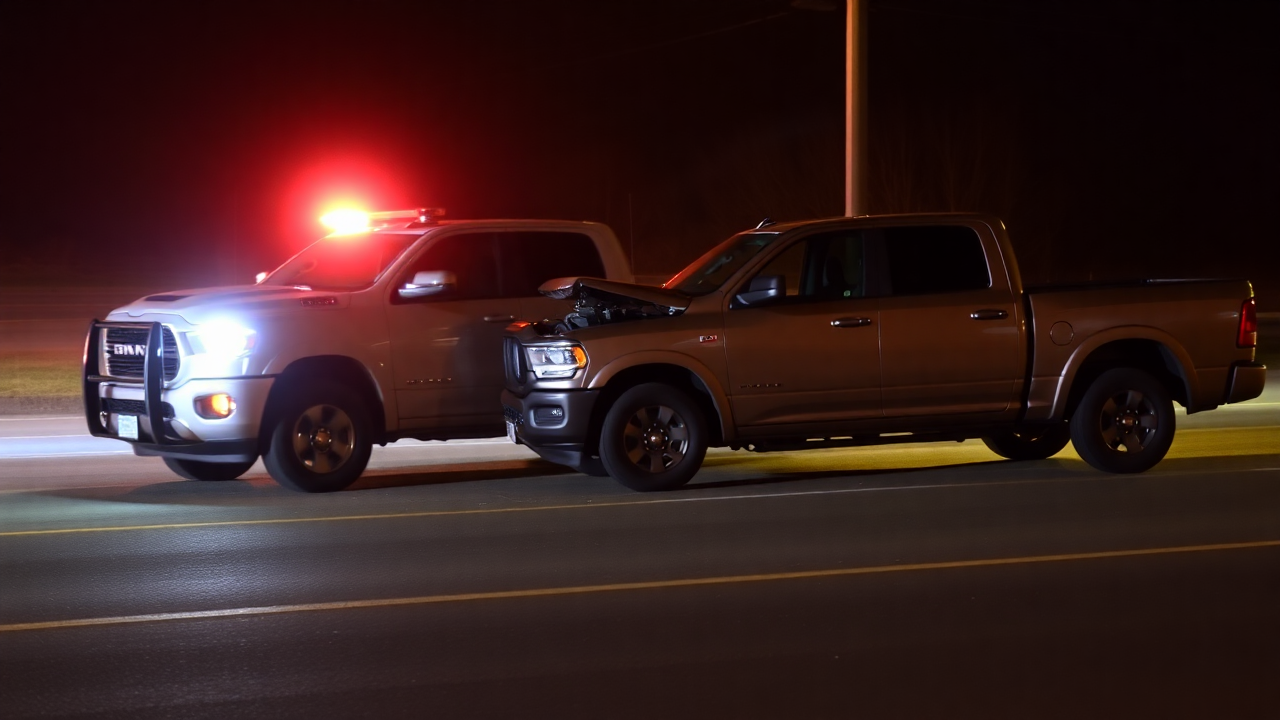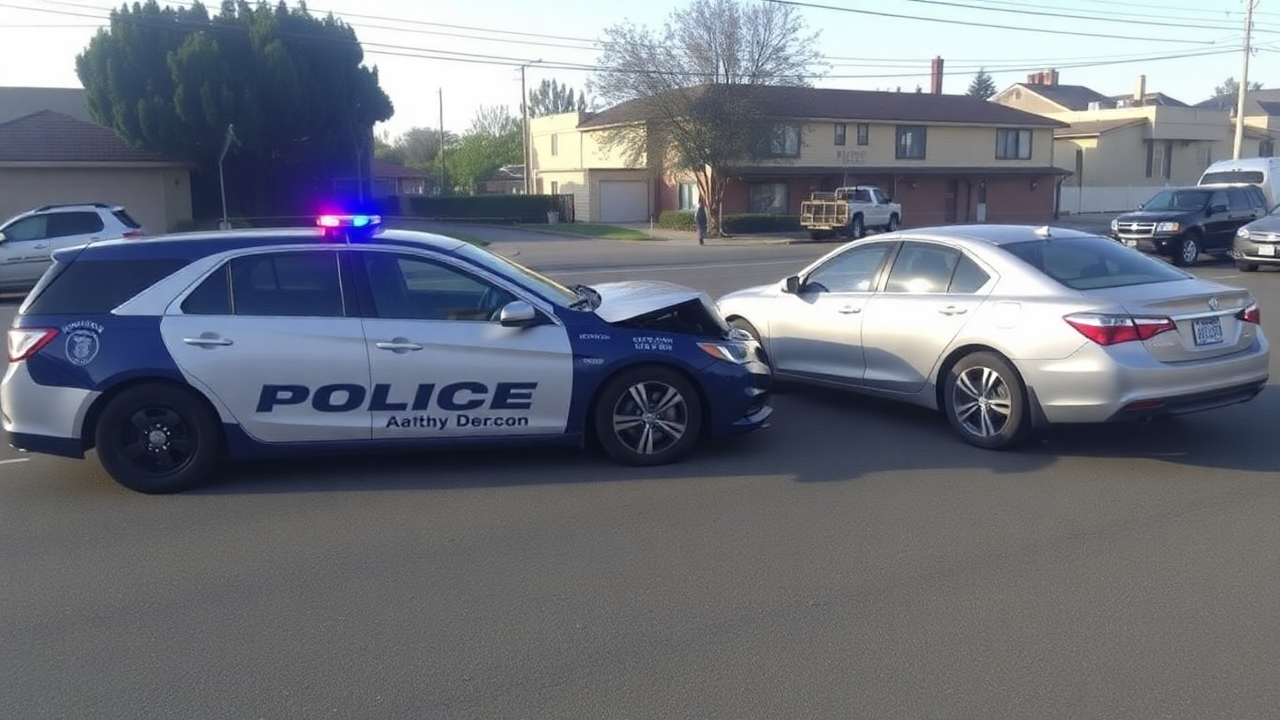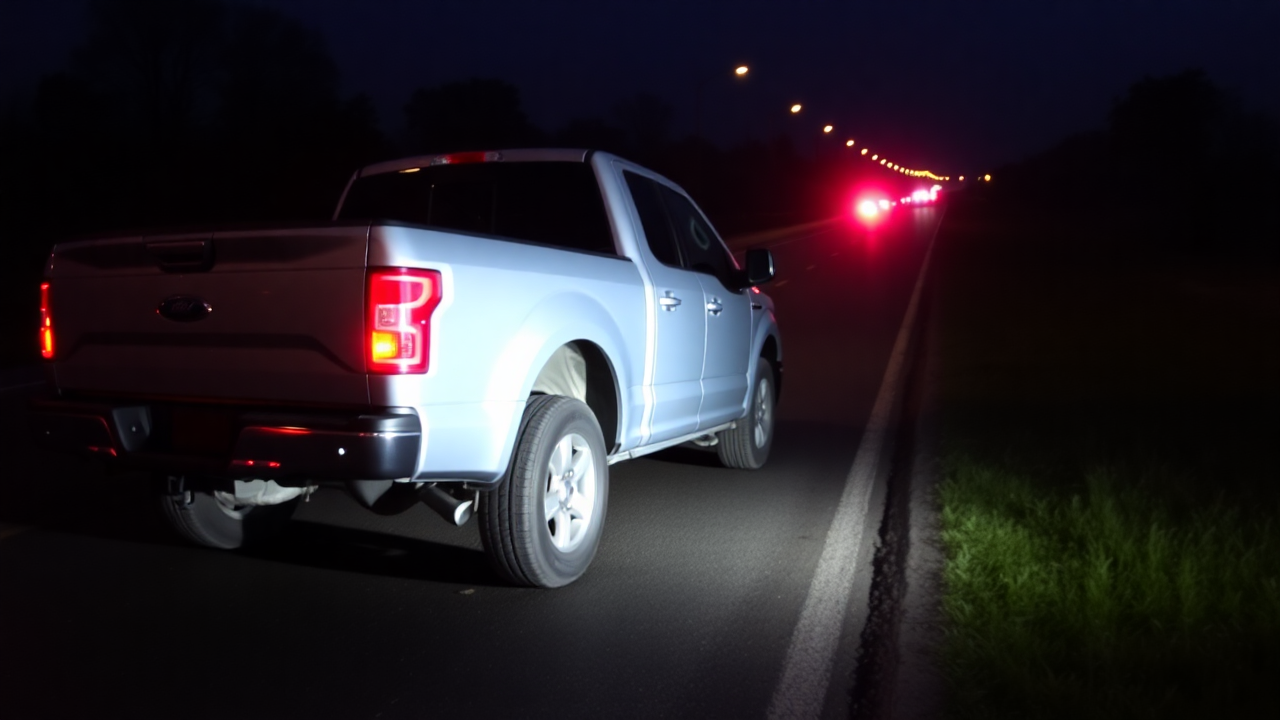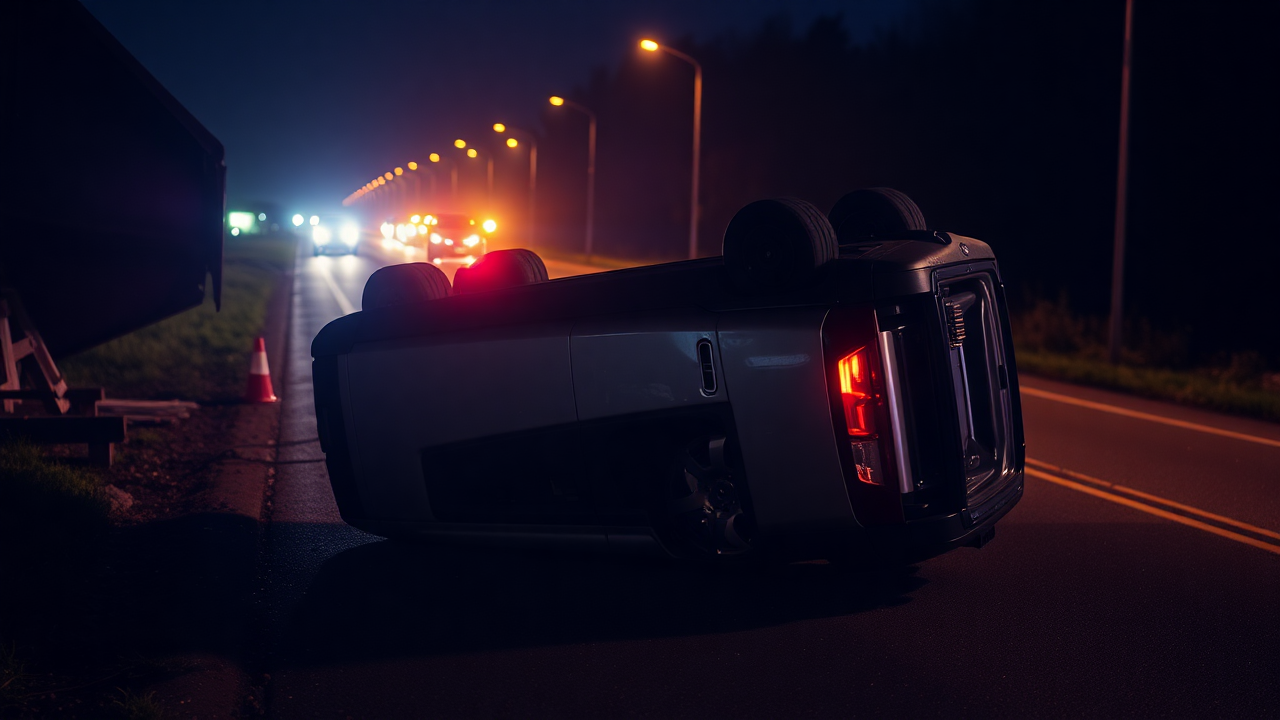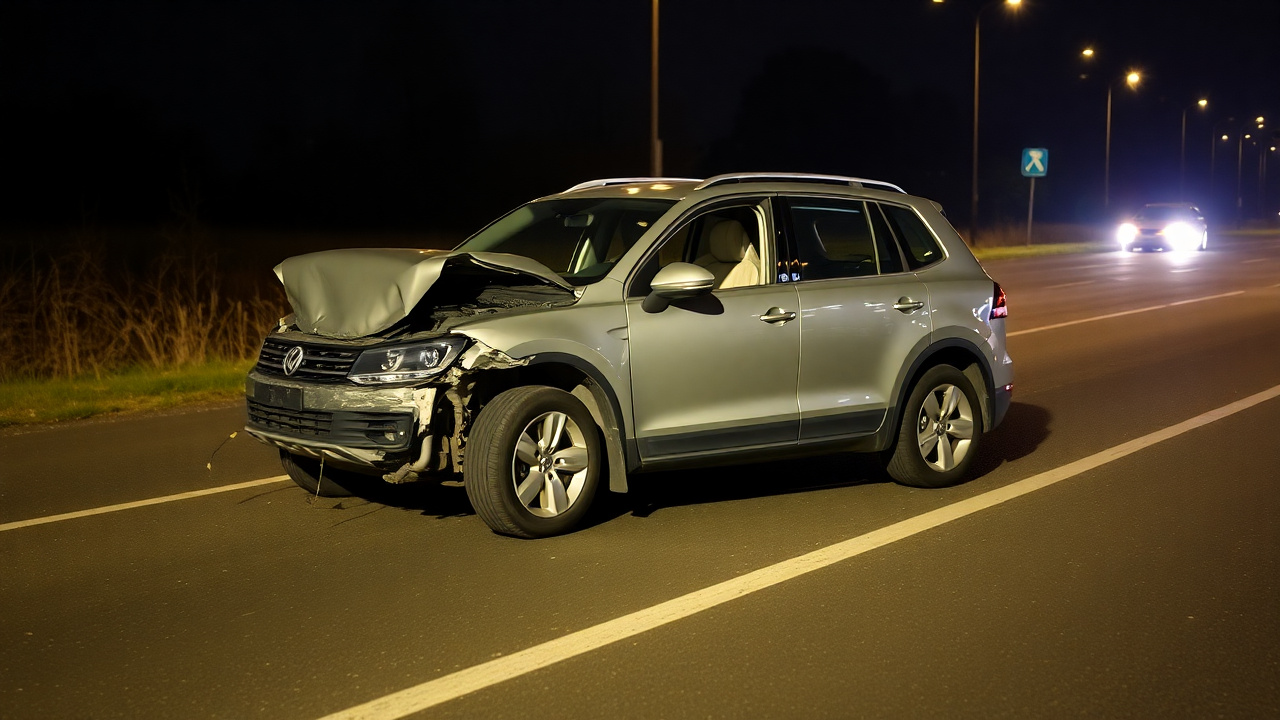Fatal Hit-and-Run Accident Claims Life of 22-Year-Old in Downtown Sacramento
A tragic hit-and-run accident in downtown Sacramento has claimed the life of a 22-year-old man, highlighting the devastating consequences of drivers who flee the scene after causing fatal crashes.... Read More
Fatal Pedestrian Accident on Piner Road Claims Life Outside Santa Rosa
A tragic pedestrian accident occurred on Saturday night, May 31, 2025, when a person was struck and killed by a BMW on Piner Road in Sonoma County, just outside... Read More
Fresno Highway 99 Accident: Driver Suffers Major Injuries After Big Rig Crash
A big rig crash on Highway 99 near Fresno has left one driver hospitalized with significant injuries, highlighting the dangerous consequences of reckless driving and the importance of highway... Read More
Fatal Electric Scooter Collision Claims Life of Cottonwood Resident in Shasta County
A tragic intersection collision in Shasta County has resulted in the death of a 34-year-old Cottonwood man after his electric scooter was struck by a pickup truck on Saturday,... Read More
Two Hospitalized in Early Morning Hit-and-Run Crash on Highway 85 in Santa Clara County
Two people were rushed to the hospital following a serious hit-and-run collision on Highway 85 in Santa Clara County during the early morning hours of Friday, May 30, 2025.... Read More
Fatal Hit-and-Run Pedestrian Accident Claims Life of 72-Year-Old Man in San Jose
A tragic hit-and-run collision in San Jose’s South Almaden Avenue area has claimed the life of a 72-year-old man and left his companion injured. The incident occurred in the... Read More
Pedestrian Struck and Killed in Clay, Sacramento County: Understanding Your Legal Rights
A tragic pedestrian accident claimed the life of a man in Clay, Sacramento County, on Thursday evening, May 29, 2025. The incident serves as a sobering reminder of the... Read More
Fatal Two-Vehicle Collision Claims Life in Folsom
A devastating two-vehicle collision in Folsom has claimed the life of one driver, highlighting the serious consequences that can result from traffic accidents in Sacramento County. The fatal crash... Read More
Fatal Bicycle Accident Critically Injured a Kid Cyclist in Bakersfield
A devastating bicycle accident in Bakersfield has left an 11-year-old child fighting for their life after being struck by a vehicle at an uncontrolled intersection. The incident on Wednesday... Read More
Fatal Bicycle Accident in Petaluma Highlights Need for Road Safety Awareness
A tragic bicycle accident in Petaluma on Wednesday, May 28, 2025, claimed the life of a male cyclist, underscoring the ongoing safety challenges facing bicyclists on California roads. The... Read More
Fatal DUI Crash in Madera County Claims Two Lives: What We Know About the Highway 41 Collision
A devastating DUI crash on Highway 41 in Madera County has left two people dead and serves as a stark reminder of the deadly consequences of impaired driving. The... Read More
Fatal Pedestrian Accident in San Francisco’s SOMA District Highlights Complex Legal Issues
A fatal pedestrian accident occurred in San Francisco’s South of Market (SOMA) neighborhood on Tuesday morning, raising essential questions about liability, impaired driving, and the complex circumstances that can... Read More
Fatal Crash Near San Mateo Toll Bridge Plaza Claims Life of Toyota RAV4 Driver
A tragic single-vehicle collision near the San Mateo Toll Bridge Plaza in Alameda County has resulted in one fatality, prompting an ongoing investigation by the California Highway Patrol. The... Read More
Fatal Pedestrian Accident on Interstate 80 Highlights Highway Safety Concerns in Alameda County
A tragic pedestrian accident on Interstate 80 in Alameda County on the evening of May 26, 2025, has once again brought attention to the dangers pedestrians face on California’s... Read More
Hit-and-Run Suspect Crashes into Building After Fresno Police Pursuit
A Fresno man in his early twenties faces multiple charges after allegedly fleeing the scene of a traffic collision and leading police on a slow-speed chase that ended with... Read More
Fatal Two-Vehicle Collision in Fresno County: Understanding Traffic Safety at Highway Intersections
A tragic two-vehicle collision at a major Fresno County intersection has claimed the life of a 38-year-old woman, highlighting the critical importance of intersection safety on California highways. The... Read More
Fatal Vallejo Car Crash Claims Three Lives in Early Morning Collision
A devastating early morning collision accident in Vallejo has claimed the lives of three men after their vehicle crashed into a parked car on Saturday, May 24th. The tragic... Read More
Fatal Single-Vehicle Crash in Sebastopol: Understanding Legal Rights After Tree Collision Accidents
A tragic single-vehicle crash accident in Sebastopol has claimed the life of a driver after their Nissan crossed into oncoming traffic and struck a tree along Bloomfield Road. The... Read More
Fatal Pedestrian-Truck Collision on Highway 37 Claims Life of Sacramento Woman
A tragic pedestrian-truck collision fatality occurred early Friday morning on eastbound Highway 37 in Vallejo, claiming the life of a 37-year-old Sacramento woman. The incident is a stark reminder... Read More
Two-Vehicle Collision Closes Wallace Road; One Injured, Dog Flees Scene
A serious two-vehicle collision on Wallace Road in Santa Rosa resulted in injuries, traffic delays, and an unusual complication when a dog fled the crash scene on Thursday morning,... Read More
Tragic Pedestrian Fatality in Highway 101 Truck Collision Near Healdsburg
A tragic pedestrian fatality occurred on US Highway 101 near Healdsburg on Thursday afternoon, highlighting the ongoing dangers faced by pedestrians on California’s busy highways. The incident has prompted... Read More
Fatal Wrong-Way Driving Accident on Highway 4 in Brentwood Highlights Electric Vehicle Fire Dangers
A tragic wrong-way driving accident on Highway 4 in Brentwood Wednesday night, May 21st, claimed two lives and shut down both directions of the highway for over seven hours,... Read More
Fatal Head-On Collision in Fresno County Highlights Importance of Seatbelt Safety
A tragic head-on collision in Fresno County claimed the life of a 20-year-old driver early Thursday morning, May 22, serving as a stark reminder of the critical importance of... Read More
Fatal Two-Vehicle Collision at Hosking Avenue and Hughes Lane in South Bakersfield
A fatal two-vehicle collision at a south Bakersfield intersection has resulted in the death of a woman early Wednesday morning. The incident, which occurred on May 21, 2025, has... Read More
Fatal Bicycle Accident in Tulare County: Understanding Your Rights and Safety on California Roads
In a fatal bicycle accident on Tuesday night, May 20, 2025, a bicyclist lost his life after being struck from behind by a vehicle in Tulare County. The California... Read More
Contra Costa County Fatal Multi-Vehicle Collision: Understanding the Kirker Pass and Hess Road Crash
A devastating multi-vehicle collision at the intersection of Kirker Pass Road and Hess Road in Contra Costa County has resulted in one fatality and two critical injuries. This tragic... Read More
Fatal Child Bicycle Accident, Hospitalized After Being Struck by Vehicle in Oakland
A child bicycle accident in Oakland has left a young child hospitalized with severe head trauma. The collision on Monday, May 19, 2025, has raised renewed concerns about bicycle... Read More
Fatal Head-On Collision Shuts Down Highway South of Castroville
A fatal head-on collision claimed the life of a 39-year-old Pacific Grove woman on Monday when her sedan collided with a semi-truck on State Route 183. The devastating crash... Read More
Fatal Motorcycle Accident in Elk Grove: What Happened and Safety Considerations
On Saturday night, a fatal motorcycle accident in Elk Grove claimed the life of a 42-year-old rider. This incident highlights motorcyclists’ serious risks and the importance of understanding motorcycle... Read More
Five Injured After Car Strikes Pedestrians and Pole in Stockton
A serious collision in Stockton left five pedestrians injured when a vehicle struck them before crashing into a pole. The incident, which occurred Sunday afternoon around 4 p.m. along... Read More
Fatal Motorcycle Collision on Highway 101 in San Jose: DUI Driver Arrested
A fatal motorcycle collision occurred on U.S. Route 101 near the Interstate 280 connector in San Jose, resulting in the death of a motorcyclist early Saturday morning. The California... Read More
Off-Duty San Francisco Police Officer Arrested for DUI Collision Causing Multiple Injuries
A recent DUI collision in San Francisco has drawn attention to the serious legal consequences that can follow when even those sworn to uphold the law find themselves on... Read More
Multi-Vehicle Crash in Arden-Arcade Sends Four to Hospital Including Infant
A multi-vehicle crash in Sacramento County’s Arden-Arcade neighborhood resulted in four individuals requiring hospitalization, including an infant, on Wednesday, May 14, 2025. The accident, which occurred during the afternoon... Read More
Highway 1 Tractor-U-Haul Trailer Collision Near Nipomo Leaves One Person Seriously Injured
A tractor-U-Haul trailer collision occurred yesterday morning on Highway 1 near Nipomo in San Luis Obispo County. The accident, which took place at approximately 8:50 a.m. on Thursday, May... Read More
Child and Adult Injured in Two-Vehicle Crash at Fruitridge Road and Monterey Way
A two-vehicle crash in south Sacramento on Wednesday morning has left an 11-year-old girl with a broken leg and an adult male with neck injuries. The collision occurred at... Read More
Fatal Pedestrian-Vehicle Collision on I-5 in Elk Grove: Incident Details and Legal Context
In a tragic incident earlier this week, a male pedestrian lost his life after being struck by a vehicle on Interstate 5 in Elk Grove. This article examines the... Read More
Pedestrian Accident in West Central Fresno: What You Need to Know
A pedestrian-vehicle collision occurred late Monday night in west central Fresno, sending one man to the hospital. This incident highlights the ongoing concerns about pedestrian safety, especially during nighttime... Read More
Motorcyclist Suffers Broken Leg in Modesto Big Rig Collision on I-5
A motorcyclist was hospitalized with a broken leg following a collision with a big rig on Interstate 5 in Modesto. The crash occurred during morning commute hours and was... Read More
Elderly Driver’s Car Goes Airborne in Dublin Crash, Lands on SUV
A dramatic accident occurred in Dublin, California, on Sunday afternoon when a vehicle driven by an elderly person became airborne after colliding with an SUV parked in a residential... Read More
Fatal Hit-and-Run Claims Cyclist’s Life in Fresno: Tragic Incident on Belmont Avenue
On Sunday evening, May 11, 2025, a devastating hit-and-run collision claimed the life of a male cyclist in his 30s in Fresno. The incident occurred shortly before 6:00 p.m.... Read More
Deadly Motorcycle Crash on I-880 Near Oakland Coliseum Causes Major Traffic Delays
A deadly motorcycle crash on Interstate 880 near the Oakland Coliseum resulted in one fatality and significant traffic congestion on Sunday evening. The incident, still under investigation by the... Read More
Deadly Crash Closes Rio Linda Boulevard in Sacramento
A deadly crash on Rio Linda Boulevard in Sacramento has resulted in one fatality and led to significant traffic disruptions in the area. Local authorities have closed a section... Read More
Fatal Pedestrian Accident on Highway 101 in San Jose: Legal Implications and Safety Concerns
A fatal pedestrian accident occurred early Saturday morning; a person was struck and killed by a Honda Civic on Highway 101 in San Jose. This unfortunate event highlights the... Read More
Tragic Morning Crash Leaves One Dead After Vehicle Strikes Tree on Elk Grove
A tragic morning crash incident early Saturday morning, a single-vehicle collision in Elk Grove, resulted in one fatality when a car struck a tree. The accident, near Elk Grove... Read More
Tragic Loss: Pregnant Woman Dies in San Jose Interstate Fatal Collision
A devastating car accident on Thursday evening resulted in the death of a 25-year-old pregnant woman and her unborn child after a fatal collision on Interstate 280 in San... Read More
Fatal Head-On Collision in San Joaquin County: What Victims Need to Know
A recent tragic accident on Highway 120 near Escalon has highlighted the devastating consequences of fatal head-on collisions on rural roads. When passenger vehicles and large farming equipment collide,... Read More
Three-Vehicle Collision on I-5 Near Hilltop Drive in Redding Sends Two to Hospital
A serious three-vehicle collision involving a semi-truck rollover on Interstate 5 near Hilltop Drive in Redding has resulted in two people being hospitalized with moderate to major injuries. The... Read More
Fatal Hit-and-Run Bicycle Accident in San Joaquin County
In a devastating incident on Monday, May 5, 2025, a 56-year-old bicyclist lost his life following a hit-and-run bicycle accident collision in San Joaquin County. The California Highway Patrol... Read More
Fatal Pedestrian Accident Outside Hanford: Legal Implications and Safety Concerns
A fatal pedestrian accident occurred early Sunday morning outside of Hanford in Kings County, California. According to the California Highway Patrol (CHP), the incident happened just before 5 a.m.... Read More
Tragic Pedestrian Fatality in Fresno Highlights Road Safety Concerns for Vulnerable Populations
A pedestrian fatality occurred late Saturday night in Fresno, adding to the city’s concerning statistics regarding traffic safety. The collision, which claimed the life of an individual believed to... Read More
Two-Vehicle Collision Disrupts Traffic at I-80 and I-580 Connector in Oakland
A two-vehicle collision temporarily halted traffic Sunday morning at the eastbound Interstate 80 and I-580 East Connector in Oakland. The California Highway Patrol (CHP) responded to the scene where... Read More
Fatal Motorcycle and Truck Accident at 8th and Howard Streets Leaves Rider with Life-Threatening Injuries
A fatal motorcycle and truck accident at a busy San Francisco intersection has left one person critically injured. The incident, which occurred Saturday evening, prompted a significant emergency response... Read More
Fatal 4-Vehicle Chain Reaction Collision on Bay Bridge: Understanding Causes and Consequences
A recent tragedy on the San Francisco-Oakland Bay Bridge has highlighted the dangers of high-speed driving and the devastating chain reactions that can occur in heavy traffic. Late Friday... Read More
Semi-Truck Accident on Highway 395 Leaves Driver Critically Injured
A devastating collision between a white Nissan sedan and a semi-truck on Highway 395 in Victorville has left one driver with critical injuries. The semi-truck accident occurred on Friday,... Read More
Fatal Pedestrian and Dog Accident in SoMa Intersection Highlights San Francisco Street Safety Concerns
In a devastating incident that has shaken the South of Market (SoMa) community, a fatal pedestrian accident and a dog were killed following a vehicle collision at the busy... Read More
Serious Collision Involving Two Big Rigs Shuts Down Interstate
On Thursday, May 1, 2025, a multi-vehicle accident involving two big rigs on Interstate 5 near Jayne Avenue in Coalinga hospitalized one person. The collision during the afternoon rush... Read More
Fatal Head-On Collision West of Modesto Claims Two Lives
In a tragic incident on Thursday, May 1, 2025, two drivers lost their lives following a fatal head-on collision west of Modesto. The California Highway Patrol (CHP) reported that... Read More
Wrong-Way Driving Incident on I-680 Results in Serious Injury Collision
A serious wrong-way driving collision occurred on northbound Interstate 680 near the Highway 24 interchange in Contra Costa County early Wednesday morning, April 30, 2025. The incident, which happened... Read More
Chevy Bolt, Three-Wheel Motorcycle Collide on I-80 in Fairfield
The California Highway Patrol reported that a 3-wheel motorcycle and a car collision occurred at approximately 7:59 a.m. under clear weather conditions during rush hour traffic. Preliminary investigations suggest... Read More
Two-Vehicle Collision on Highway 99 Leads to Serious Injuries
A two-vehicle collision on Highway 99 in Fresno County resulted in one driver suffering moderate to major injuries on Tuesday evening. The crash, a collision between two pickup trucks... Read More
Rear-End Collision on Bayshore Freeway in Mountain View: Legal Rights for Accident Victims
On Monday morning, a rear-end collision between a Toyota Prius and a Tesla occurred on Bayshore Freeway (US 101) in Mountain View, resulting in minor injuries and significant traffic... Read More
Oakland Police Car Crash on I-580 with Speeding Acura SUV
An Oakland Police Department car crash with a silver Acura SUV occurred on Tuesday morning along Interstate Highway 580. According to the California Highway Patrol (CHP), the incident occurred... Read More
Fresno Hit-and-Run Leaves E-Scooter Rider Seriously Injured
A hit-and-run collision on Sunday afternoon has left a Fresno e-scooter rider with serious injuries. The incident, which occurred at the intersection of Maple and McKenzie avenues, has sparked... Read More
Fatal Hit-and-Run on Highway 1 in Santa Cruz County: What You Need to Know
In a tragic incident on Sunday night, April 27, 2025, a man lost his life after being struck by a fatal hit-and-run driver while walking along Highway 1 near... Read More
Fatal High-Speed Crash in Fresno County Leaves 24-Year-Old Dead
In a devastating incident early Sunday morning, a 24-year-old driver lost his life following a high-speed crash in Fresno County. The fatal collision occurred at approximately 12:10 a.m. at... Read More
Fatal Bicycle Accident Near Highway 41 in Fresno
A tragic bicycle accident claimed the life of a cyclist near the Highway 41 on-ramp in Fresno this past weekend. This unfortunate incident highlights cyclists’ ongoing dangers on our... Read More
Deadly I-880 Collision: Pedestrian Killed in Early Morning Fremont Crash
A tragic pedestrian accident claimed the life of a person on I-880 in Fremont during the early morning hours of Friday, April 25, 2025. This incident highlights the ongoing... Read More
Fatal Hit-and-Run on Stockton Boulevard Claims Woman’s Life in Sacramento
In a tragic incident on Thursday night, April 24, 2025, a woman lost her life following a hit-and-run crash on Stockton Boulevard near Riza Avenue in Sacramento. The fatal... Read More
Motorcyclist in Critical Condition After Collision on Phelan Road
A serious motorcycle accident in San Bernardino County has left a Harley-Davidson rider fighting for his life after a collision with a Honda Civic. The incident, which occurred on... Read More
Three-Vehicle Crash in North Sacramento Leaves One Critical, Two Injured
A serious three-vehicle crash at a busy north Sacramento intersection sent three people to the hospital on Wednesday evening, with one victim fighting for their life after being trapped... Read More
Fatal Two-Vehicle Collision Near Dinuba Claims One Life, Injures Two Others
A devastating two-vehicle collision at a rural intersection near Dinuba has resulted in one fatality and two serious injuries. The accident, which occurred during the evening hours of Tuesday,... Read More
Fatal Wrong-Way Driving Crash in Antioch Claims One Life, Injures Three Others
In a tragic incident Tuesday night, one person lost their life and three others sustained injuries in a fatal wrong-way driving crash on SR-160 near Highway 4 in Antioch.... Read More
Fatal Pedestrian Accident in Reedley: What Victims and Families Should Know
A tragic pedestrian accident in Reedley has claimed the life of a 31-year-old man, raising important questions about roadway safety and legal considerations for accident victims and their families.... Read More
Fatal Bicycle Accident Claims 63-Year-Old Man in North Highlands
A fatal bicycle accident in Sacramento County has resulted in the death of a 63-year-old male cyclist. The incident occurred on Madison Avenue in North Highlands on Monday evening,... Read More
Fatal Bay Area Car Collision Claims Lives of Two Northern California Drivers
In a tragic incident early Monday morning, two Northern California residents lost their lives in a devastating car collision in Livermore. The fatal crash, which occurred on Isabel Avenue,... Read More
Fatal Head-On Collision Near Yuba City: Legal Implications and Safety Concerns
A fatal head-on collision near Yuba City on Sunday, April 20, 2025, has resulted in the death of a 60-year-old woman and left another person with serious injuries. The... Read More
Fatal Collision in Walnut Creek: What We Know So Far
A tragic incident occurred in Walnut Creek during the early hours of Saturday morning, resulting in a fatal collision that is now under investigation by local police. This devastating... Read More
Fatal Collision in San Jose: Understanding the Legal Implications of Traffic Accidents
A fatal collision occurred in San Jose on Saturday night when a “major vehicle crash” resulted in the city’s ninth traffic fatality of 2025. The accident, which involved an... Read More
Interstate 880 Two-Vehicle Collision in Oakland: Causes, Consequences, and Legal Rights
A recent two-vehicle collision on Interstate 880 in Oakland has raised concerns about highway safety in the area. This article details the incident, explores common causes of similar accidents,... Read More
Tragic Marin County Crash Accident Claims Lives of Four Archie Williams High School Teens
In a heartbreaking incident that has shaken the Marin County community, four teenagers from Archie Williams High School lost their lives in a single-vehicle crash on Friday evening, with... Read More
Three-Vehicle Collision in Vineyard Area Leaves Three Injured
A serious three-vehicle collision occurred at the intersection of Elk Grove, Florin, and Gerber roads in Sacramento County’s Vineyard area early Friday morning, resulting in injuries to three individuals.... Read More
Two Cyclists Seriously Injured in Big Rig-Bicycle Collision in Turlock
A big rig-bicycle collision occurred in Turlock on Thursday night. Two bicyclists were struck by a large commercial truck at the intersection of Main Street and Holland Drive. The... Read More
Multi-Vehicle Collision Causes Major Backup on Westbound I-80
A multi-vehicle collision on westbound Interstate 80 near the Causeway created significant traffic congestion during Thursday morning’s commute in West Sacramento, resulting in minor injuries and extensive delays for... Read More
Fatal Head-On Collision on S. Watt Avenue: Gravel Truck and Sedan Crash Claims One Life
A fatal head-on collision between a gravel truck and a sedan on South Watt Avenue near Elder Creek Road in Sacramento has resulted in one fatality. The crash occurred... Read More
Fatal Motorcycle Accident on Sacramento Freeway Connector Ramp: Legal Insights and Safety Concerns
In a fatal motorcycle accident on Tuesday, April 15, 2025, a 45-year-old male motorcyclist lost his life in a collision with a car on a freeway connector ramp in... Read More
Box Truck Driver Airlifted After Multi-Vehicle Collision on I-15 in Victorville
A serious multi-vehicle collision on Interstate 15 in Victorville resulted in a box truck driver being airlifted to a trauma center on Tuesday afternoon. The crash, which involved three... Read More
Fatal Dirt Bike Accident in Fresno County Claims Rider’s Life
A fatal dirt bike accident in Fresno County has resulted in the death of a 31-year-old man who was riding a dirt bike near Coalinga. The incident on Highway... Read More
Three-Vehicle Collision in Elk Grove Sends Two to Hospital
Emergency dispatch reports say a three-vehicle collision at a busy Elk Grove intersection on Monday morning hospitalized two people. The incident occurred during the morning rush hour and is under investigation... Read More
Three-Vehicle Collision in Elk Grove Sends Two to Hospital
A three-vehicle collision at a busy Elk Grove intersection on Monday morning hospitalized two people. The incident, which occurred at Bradshaw Road and Crisswell Drive, prompted a rapid emergency... Read More
Tragic Stockton Slough Crash Claims Life of 30-Year-Old Local Man
In a tragic slough crash that occurred early Sunday morning, a 30-year-old Stockton resident lost his life after his vehicle crashed into a slough along Interstate 5. The San... Read More
Fatal Rollover Crash on I-15 Freeway Near Halloran Springs Under Investigation
A tragic accident on the northbound 15 Freeway has left authorities investigating the circumstances surrounding a fatal rollover crash that occurred this past weekend. The incident, which took place... Read More
Fatal Pedestrian Accident on Business 80 in Sacramento: Understanding Highway Pedestrian Safety
In a fatal pedestrian accident early Saturday morning, a 35-year-old man lost his life after being struck by multiple vehicles on Business 80 in Sacramento. This unfortunate event highlights... Read More
Tragic Off-Road Motorcycle Collision Claims Two Lives in Pixley
In a devastating incident early Friday morning, two men lost their lives in a tragic off-road motorcycle collision while riding off-road motorcycles in Pixley, Tulare County. This tragic accident... Read More
Fatal Head-On Collision Near Salinas Claims One Life, Injures Another
In a devastating incident early Friday morning on April 11, 2025, a fatal head-on collision south of Salinas in Monterey County claimed the life of one driver and sent... Read More
Fatal Pedestrian Accident on Highway 99 Onramp in Sacramento
A fatal pedestrian accident occurred in south Sacramento early Friday morning when a pedestrian was fatally struck by two vehicles on the Calvine Road onramp to northbound Highway 99.... Read More
Fatal Chain-Reaction Crash in Fresno County Claims Life of 21-Year-Old Woman
A devastating chain-reaction crash on Interstate 5 in Fresno County has resulted in the death of a 21-year-old woman and injuries to six others. The incident occurred on Thursday,... Read More
Fatal Pedestrian Accident in Mountain View: 73-Year-Old Man Killed in Early Morning Collision
In a fatal pedestrian accident early Wednesday morning, a 73-year-old man lost his life after being struck by a vehicle at a Mountain View intersection. The fatal collision has... Read More
Major Injuries Reported After Serious Head-On Collision on Highway 101 in Monterey County
A serious head-on collision involving a semi-truck and a passenger vehicle on Highway 101 near San Ardo resulted in two women being hospitalized with major injuries. The early morning... Read More
Pedestrian Fatality: Hit-and-Run Collision in Pinon Hills Claims Life at Highway 138 Intersection
A fatal hit-and-run incident in San Bernardino County left one pedestrian dead in the early morning hours of Tuesday, April 8, 2025. The fatal collision occurred at the intersection... Read More
Fatal Vehicle Collision in Union City: Woman Killed in Tragic Double Accident
A fatal vehicle collision in Union City has left a community in mourning after a pedestrian was killed in a tragic series of collisions. This devastating event highlights the... Read More









